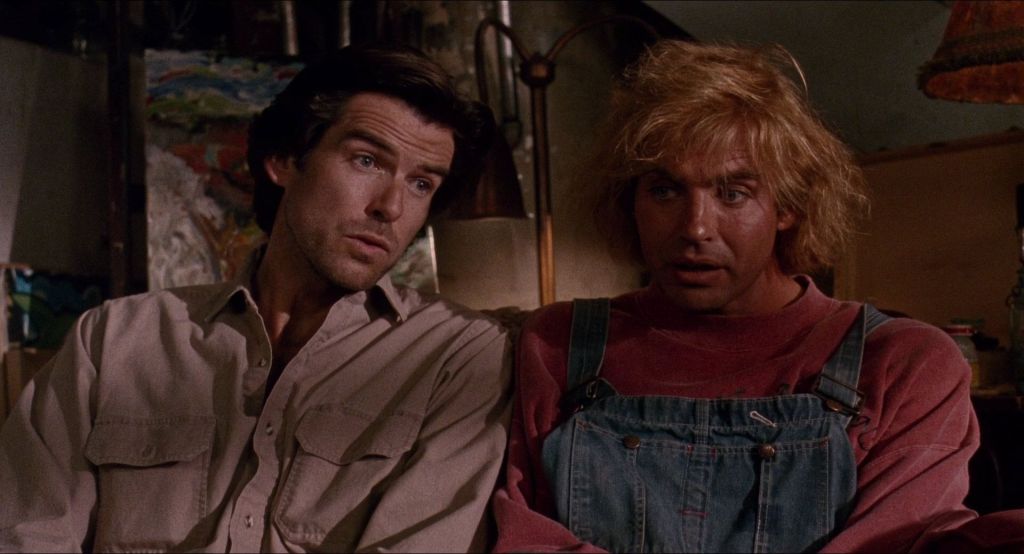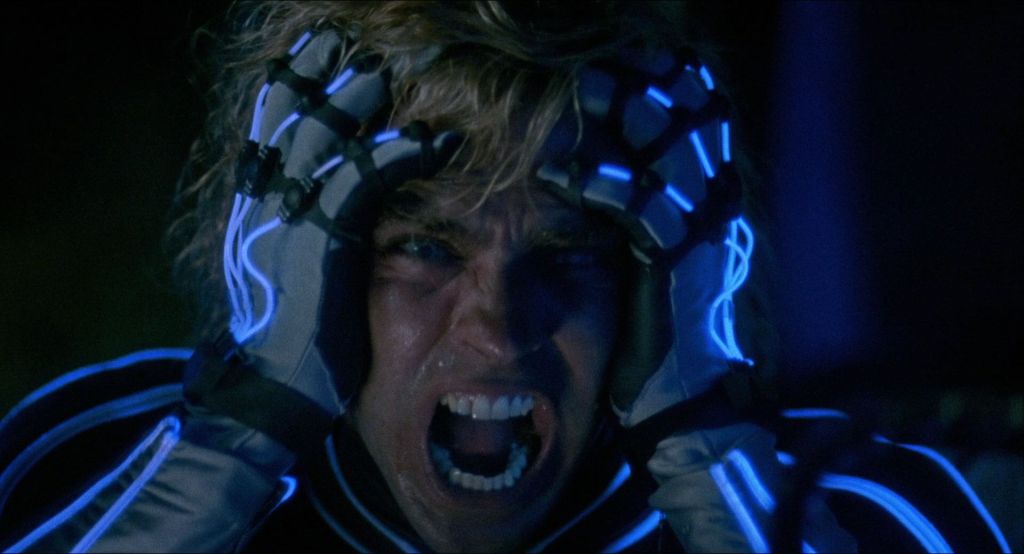In 1992, a science fiction horror film titled The Lawnmower Man hit theaters, grossing an impressive $150 million worldwide against a modest $10 million budget. Despite its commercial success, the film became notorious for something else entirely: a bitter legal battle with author Stephen King, who fought to have his name removed from the film. Though the movie was marketed as “Stephen King’s The Lawnmower Man,” the adaptation had little to do with King’s original short story of the same name. What followed was a landmark lawsuit that changed how studios could market adaptations and demonstrated the limits of creative license when adapting established literary works. The case represented the first time in 70 years that a writer successfully sued to disassociate their name from a film, setting a significant precedent in entertainment law and highlighting the sometimes contentious relationship between authors and filmmakers.
Videos by ComicBook.com
The original version of “The Lawnmower Man” was a brief ten-page short story published in the May 1975 issue of Cavalier magazine and later included in King’s 1978 collection Night Shift. King’s story centered on a homeowner named Harold Parkette who hires a lawn service only to discover the serviceman is a naked, grass-eating satyr who worships the Greek god Pan. The lawnmower operates independently while the serviceman crawls behind it, consuming the grass clippings. When Parkette attempts to call the police, both the serviceman and the lawnmower ritually sacrifice him to Pan. The entire narrative was bizarre, supernatural, and distinctly King in its suburban horror.
The film that eventually reached theaters told an entirely different story. Directed by Brett Leonard, The Lawnmower Man starred Jeff Fahey as Jobe Smith, an intellectually disabled gardener, and Pierce Brosnan as Dr. Lawrence “Larry” Angelo, a scientist conducting experiments in virtual reality and cognitive enhancement. The plot follows Dr. Angelo as he uses Jobe as a test subject, dramatically increasing his intelligence through a combination of drugs and virtual reality simulations. As Jobe’s intellect expands, he develops psychokinetic and telepathic abilities, eventually becoming dangerously obsessed with evolving into a digital being. The film was essentially a technological cautionary tale about artificial intelligence and virtual reality — themes completely absent from King’s original work. The only similarity to King’s story is a brief two-minute scene in which Jobe, now possessing telekinetic powers, uses a lawnmower to kill a character named Harold Parkette.
[RELATED: I Want These Stephen King Stories Adapted After The Monkey]
Stephen King’s The Lawnmower Man Legal Battle, Explained

The genesis of the disconnect between story and movie is traced back to Allied Vision, which had acquired the film rights to “The Lawnmower Man” but struggled to expand the short story into a feature-length film (something that had only been done a few times at the point, such as Children of the Corn). Instead of developing King’s narrative, they opted to merge elements of his story with an unrelated screenplay titled “Cyber God,” written by Brett Leonard and Gimel Everett. The result was a film that, according to King’s court documents, “bore no meaningful resemblance” to his original work.
As one of the world’s most adapted authors, with dozens of his works transferred to both big and small screens, King has generally been accommodating of creative interpretations. However, The Lawnmower Man represented such an extreme departure that King felt compelled to take legal action to protect his brand and relationship with his audience. That’s why, in May 1992, shortly after the film’s release, King filed a lawsuit against Allied Vision Ltd. and New Line Cinema, seeking to have his name removed from the film’s title and marketing materials.
In July 1992, a federal judge ruled in King’s favor, marking the first successful case of its kind since 1922, when author James Oliver Curwood had his name removed from the film I Am the Law. The ruling stipulated that New Line Cinema must remove King’s name from the film’s title and all promotional materials. When New Line appealed, a three-judge panel issued a partial modification in October 1992, allowing the film to retain a “based upon” credit in the actual film but requiring King’s name to be removed from advertising.
[RELATED: This Stephen King TV Series Doesn’t Get Enough Love From Fans]

The parties eventually reached a $2.5 million settlement in May 1993. However, the legal saga was far from over. Despite the court order and settlement, New Line continued to use King’s name in advertising for the film, particularly on videocassette packaging. This defiance led to further legal action, and in 1994, a federal judge found New Line in contempt of court for failing to comply with the original ruling. The studio was given thirty days to correct the situation or face a penalty of $10,000 per day.
The Lawnmower Man case established important precedents regarding author rights in film adaptations. It affirmed that writers have legal recourse when their work is fundamentally misrepresented, particularly when their name is used as a marketing tool. The ruling also underscored that mere ownership of adaptation rights doesn’t grant studios unlimited freedom to create entirely different stories while leveraging an author’s reputation. The film itself has developed a curious legacy. Despite the controversy, it became a cult classic in early virtual reality science fiction, praised for its ambitious visual effects that were groundbreaking for 1992.
The Lawnmower Man is currently available for free streaming on Tubi, if you dare.








